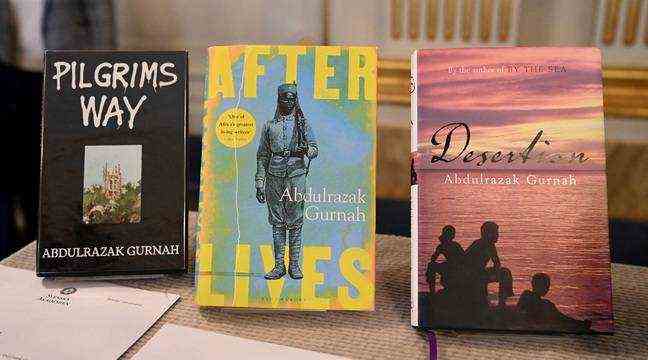Absent from the bookmakers’ prediction lists, Abdulrazak Gurnah received the prestigious Nobel Prize for Literature this Thursday, to the surprise of critics, from his own publisher Henrik Celander in Sweden, but also from himself. When the Swedish Academy called, “I thought it was a joke,” said the winner, AFP reports.
Yet it is this novelist who was rewarded, and especially his “empathetic and uncompromising account of the effects of colonialism and the fate of refugees caught between cultures and continents”, as well as his “attachment to truth and its aversion to simplification, ”explained the jury. A question that runs through the entire work of this author who began to write “without any idea of a plan but in a hurry by the desire to say more”.
“Fell” in writing
Born in 1948 in Zanzibar – an archipelago off the coast of East Africa and now part of Tanzania – Abdulrazak Gurnah came to the UK in 1968 to study. In an article in the British daily The Guardian, published in 2004, Abdulrazak Gurnah explained that he started writing at the age of 21, shortly after moving to England. He said he “fell” into writing, without having foreseen it. “I started to write casually, in a certain anguish, without any idea of a plan but in a hurry by the desire to say more”, he explained.
His first three novels, Memory of Departure (1987), Pilgrims Way (1988) and Dottie (1990), discuss the experience of immigrants in contemporary British society. His fourth novel, Paradise (1994), takes place in colonial East Africa during World War I and was selected for the Booker Prize, a British literary prize. Admiring Silence (1996) tells the story of a young man who leaves Zanzibar and emigrates to England where he gets married and becomes a teacher. A return to his native country 20 years later deeply disturbs his relationship with himself and his marriage.
At the presentation of his Nobel this Thursday, Abdulrazak Gurnah notably called on Europe to see refugees from Africa as wealth. “A lot of these people who come, come out of necessity, and also frankly because they have something to give. They do not come empty-handed, ”said the writer in an interview with the Nobel Foundation, calling for a change of outlook on“ talented and energetic people ”.
“Melancholic, disenchanted and superbly embodied works”
For academic Luca Prono, Gurnah’s works are “dominated by questions of identity and displacement and how they are shaped by the legacy of colonialism and slavery.” “Gurnah’s accounts all rest on the devastating impact that migration to a new geographic and social context has on the identity of his character,” he wrote on the British Council website.
Near the sea (2001), awarded the RFI Witness of the World literary prize in 2007, tells the story of Saleh Omar, an elderly asylum seeker living in an English seaside town. “Rooted in the colonial history of the African East, rustling with Swahili legends, served by a bewitching language, Gurnah’s tales navigate between the initiatory tale, the exploration of the pains of exile, autobiographical introspection and meditation on the human condition ”, wrote in 2010 Abdourahman A. Waberi in the Diplomatic world. Gurnah “offers us melancholy, disenchanted and superbly embodied works”, he added, in this review of the book. Desertion, published in France under the name Farewell Zanzibar.
His most recent novel, Afterlives was published in 2020 and looks at German colonization in Africa. “Traveling far from home offers distance and perspective, as well as a degree of amplitude and liberation. This makes the memories, which is the writer’s hinterland, more intense. Wrote Abdulrazak Gurnah in the Guardian. The novelist currently lives in Brighton, in the south-east of England and has taught literature at the University of Kent.

